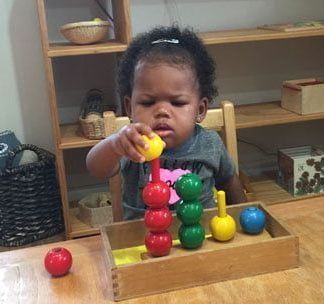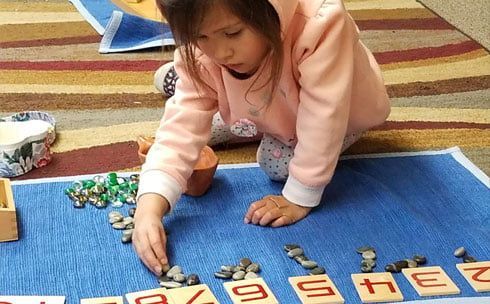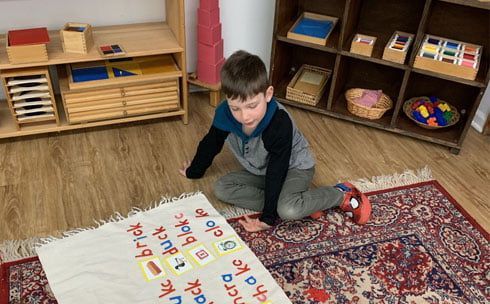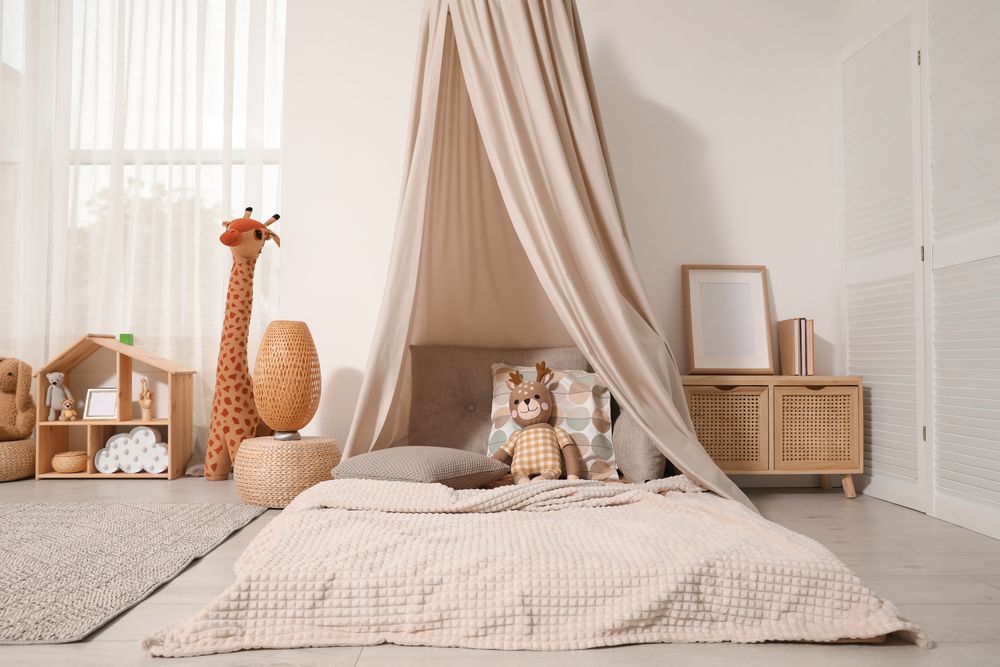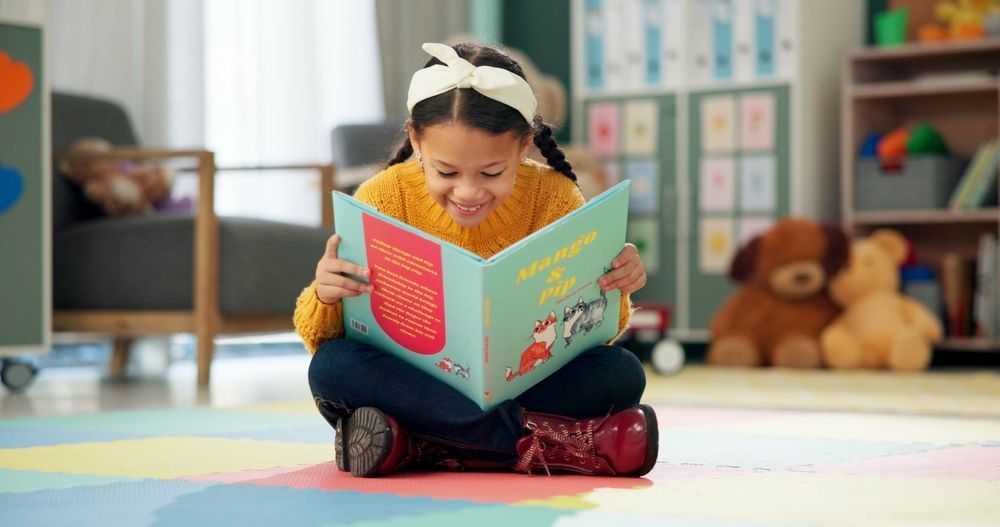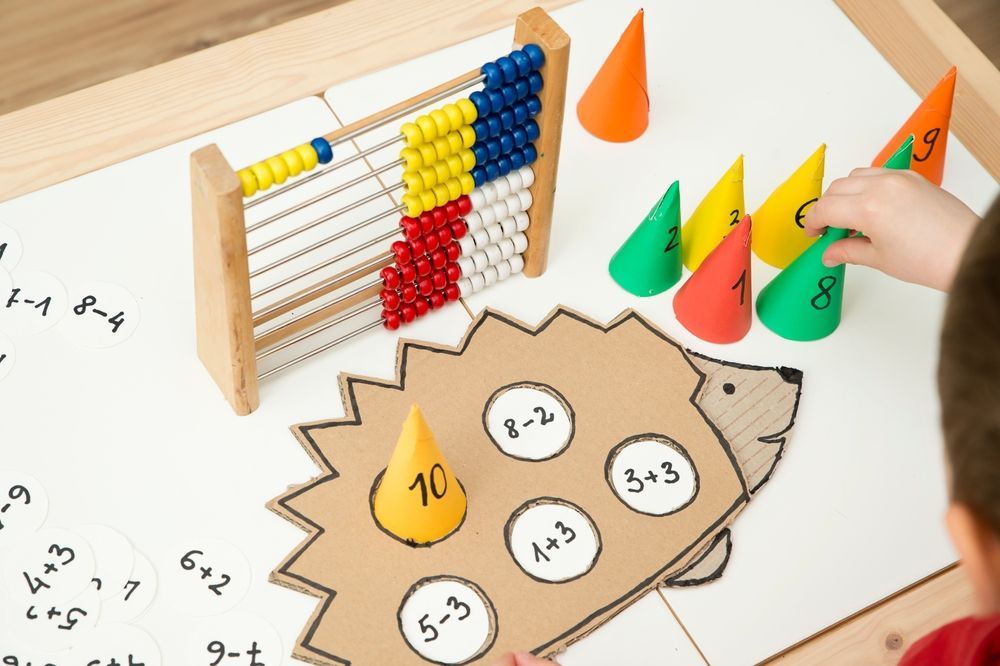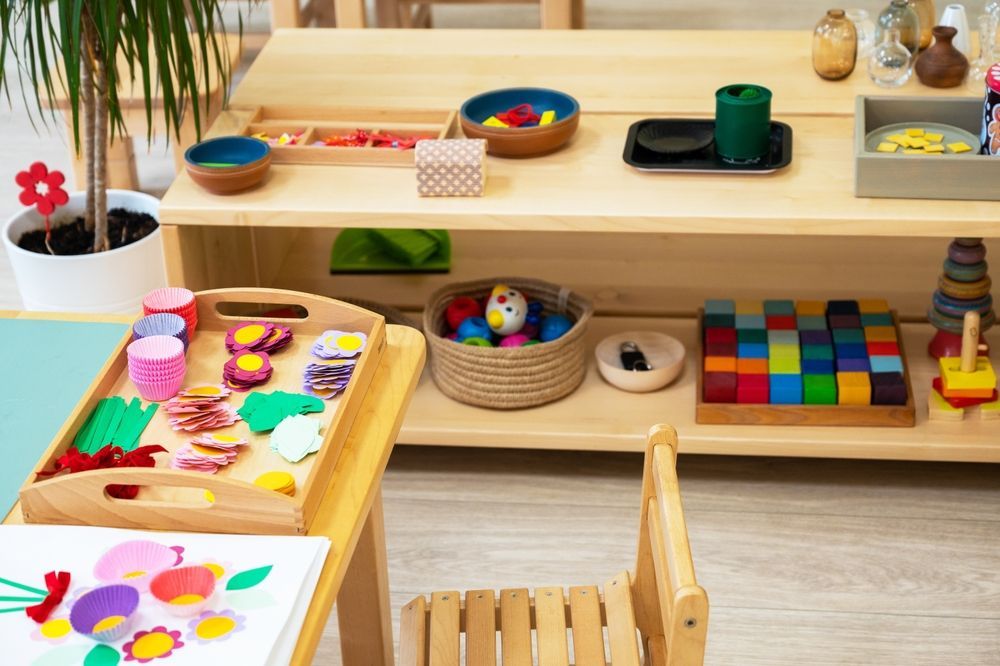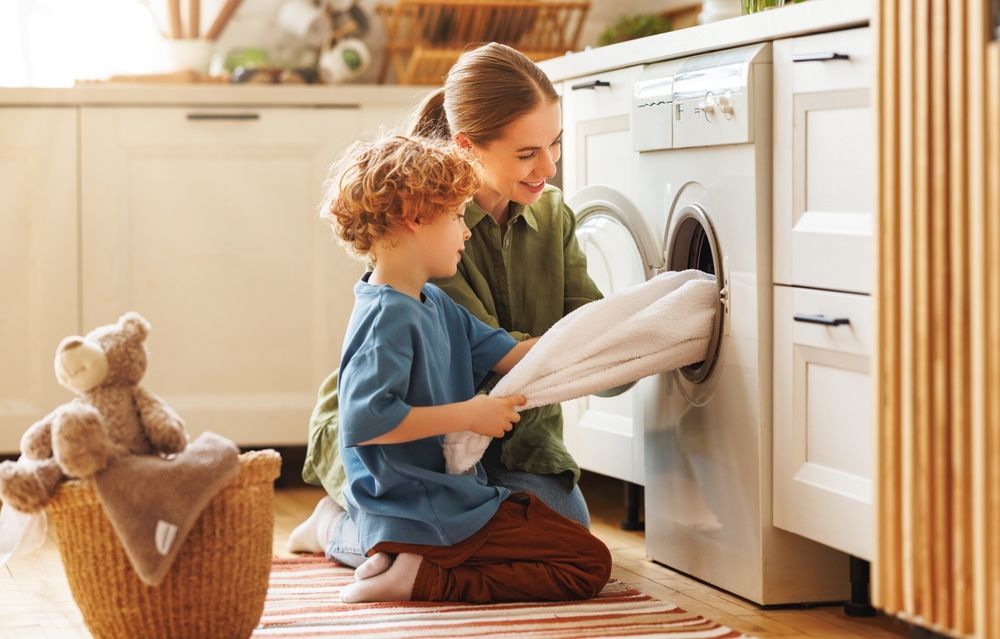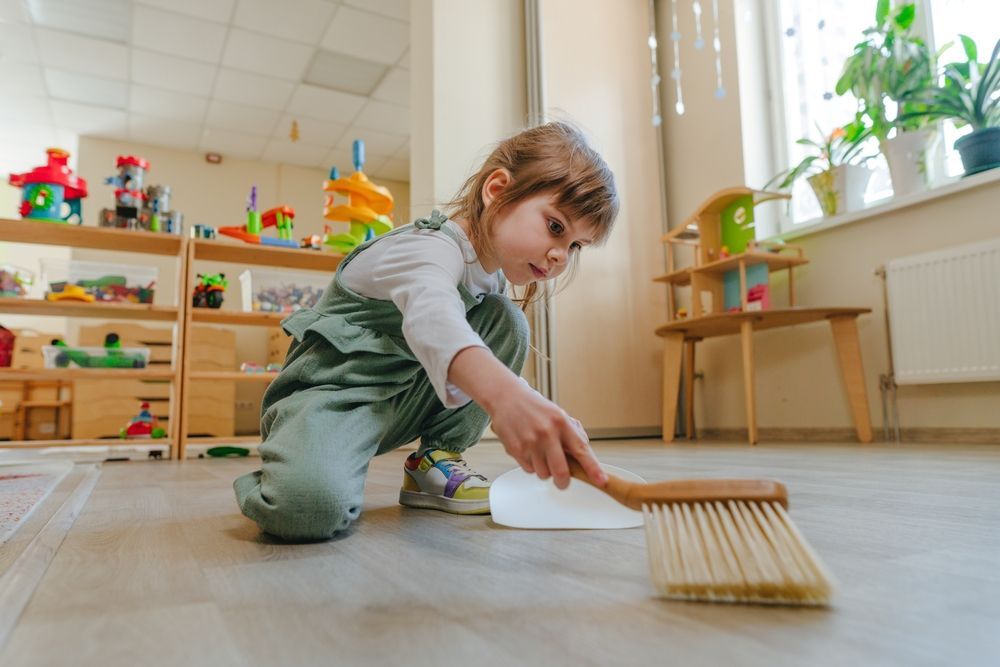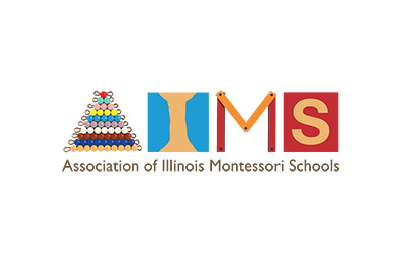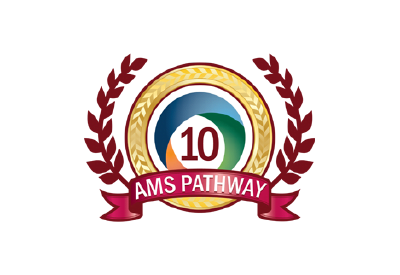Written by: Mansio Montessori
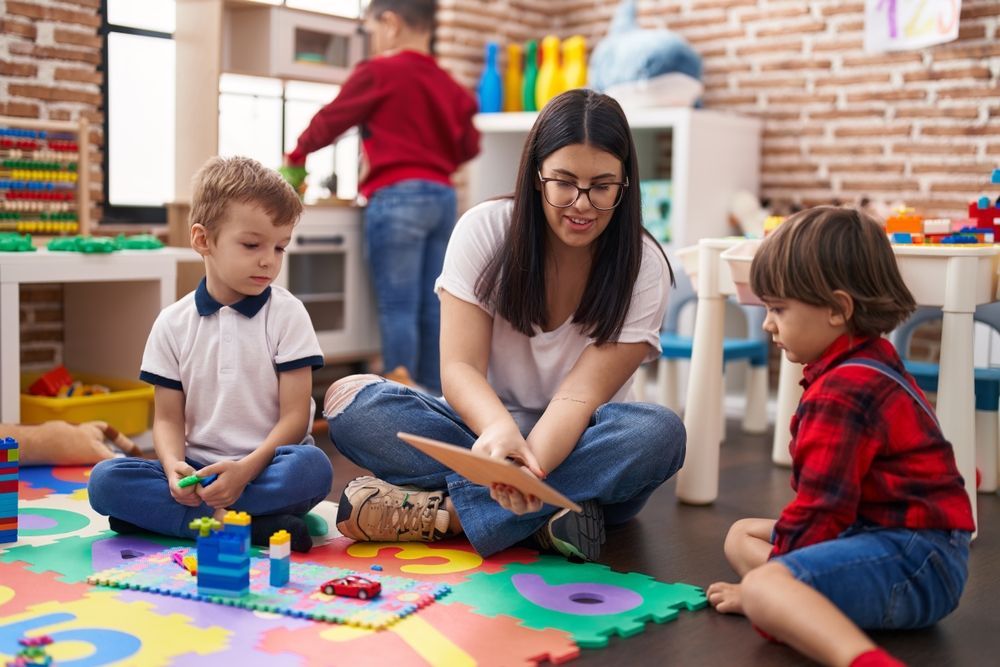
Examining the benefits of preschool vs. staying home is a challenge for every parent. The most important thing to know right away is that there is no one option that is best for every family or child. By taking the time to have a very thorough and complete understanding of the advantages of both preschool and the stay-at-home approach, you can make a decision that’s better fitting for your child.
Benefits of Preschool
For many children, there are outstanding reasons to enroll in a preschool setting. As you think about daycare
benefits for parents and children keep the following commonly experienced advantages for children that attend a preschool environment.
Social Skills
As you consider preschool, think about it as a social experience, not just about learning. Your child will have the opportunity to interact with peers, people who are very different from those who are at home. That new social environment teaches critical skills in a real-world setting. That includes how to build relationships and how to work together. It also helps to each problem-solving skills and how to deal with another person who does not agree.
Independence
As you think about
what age preschool is ideal for, consider the independence factor. Many parents believe their child is nowhere near ready to master tasks on their own, but they may just surprise you. When you place your child in an environment like this that is both nurturing and very safe for them, they learn how to communicate their needs. They also learn how to be confident in themselves. That will pay off as they begin to explore the world around them as they are older.
Responsibility
Your child is not going to be fully responsible for themselves at the age of 2 or 3. However, in a preschool setting, they will learn to take responsibility for their actions. They will also learn how to navigate tough decisions and what their actions mean to their experiences.

Preparation for School Life
Also important is to consider what your child can do at 2 years old or at whatever age you are considering. For example, does your child have the necessary ability to navigate interacting with others? Are they able to follow directions? You may also want to consider if your child can handle being away from their parents. They will need to do this, and the sooner they learn how to, the better.
Early Learning Foundation
Another important benefit of preschool is that it creates a very strong foundation for a love of learning. This is particularly beneficial in the Montessori approach, where children are encouraged to seek out activities and learn based on what interests them. That initial foundation in math and science, or perhaps art and reading, will be continuously supported as your child gets older.
Benefits of Staying at Home
There are some unique benefits that comes from the one-on-one interaction that a child receives in the home environment instead of going to preschool. Consider some of the benefits your child may see if you choose to go this route.
Individualized Attention
Having a parent or guardian’s individual, undivided attention can really be valuable especially when the focus is on teaching and exploring the world around them. It helps children to become more confidence in themselves and may also help to support their growth and development.
Flexible Environment
You choose the environment that is suitable to your child, exposing them to the types of experiences, toys, and resources they need to learn. Keep in mind that when you’re making the decision for public school or private school later, you may have a better understanding of how well your child works in various environments when you’ve had the time to work with them and structure their education and development in such an individualized manner.
Emotional Security
Having a strong bond with parents and siblings is very important for the development of your child. When you have more time at home, the child grows closer to the parent and others in the home. This also helps to create a more effective and stronger emotional bond. In many situations, this can directly impact a child’s emotional well-being and could impact their overall mental health development in the early years of their life.
Customized Learning Experiences
When you’re the one leading your child’s education, you can choose to discuss and follow topics that are fitting to them. You can select to spend the day at a museum, if it suits your child’s love of history. You could spend more time outdoors or spend time on one-on-one tasks like learning to read. Because you have this high level of customized time, you can really create the educational path you desire for your child.
Family Values
It’s important for many families to have a foundation of education that is built on their family values. You don’t have to worry that someone else will be influencing your child in a way that you do not believe is appropriate or safe for them. You can also focus on your child’s health and religious development, cultural exposure, and overall family belief systems in your own way, supporting their growth without stifling their interest in learning more.

Which Is Better for Your Child?
The key to exploring these options is to think about how the decision will impact your child. The benefits of preschool vs. staying home are numerous in every situation. The goal you have, then, is to have all of the information you need to make better decisions for your child. With such an important decision lurking that will shape your child’s educational future, it’s wise to consider all early childhood education paths to find the one that is fitting to their specific needs and your goals for their education.
There is no answer that is right or wrong. However, it is worth exploring both paths thoroughly and getting advice from other families like your own. Doing this helps you gain peace of mind and know that you’re making the best decision for your child.
Forms, Policies, and Calendars | Website imagined & executed by RivalMind
